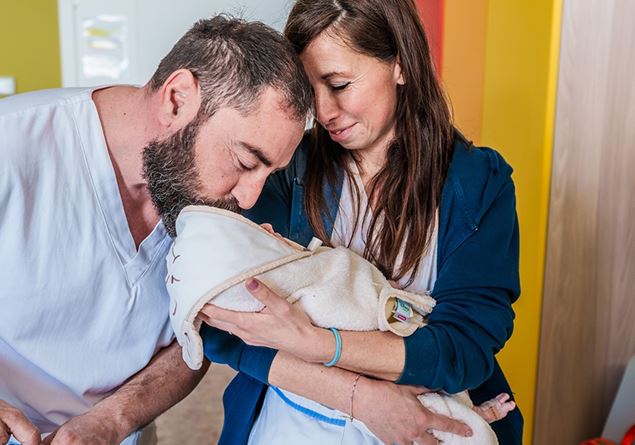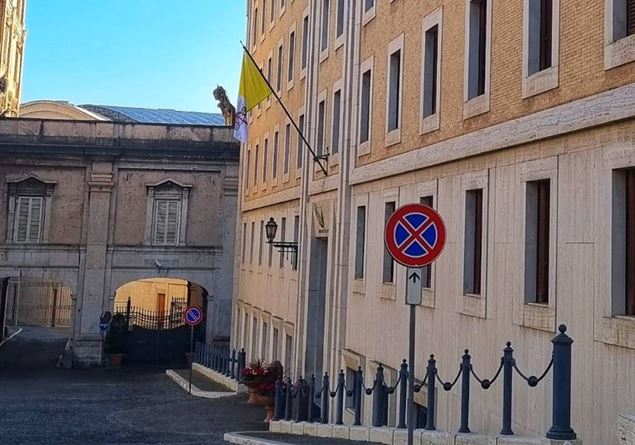Still in “protected” convalescence as recommended by Gemelli’s doctors on the occasion of the resignation by hospitalization, Pope Francis cannot keep the usual hearing on Wednesday. However, the pontiff, who continues to improve, as reported by the press room, also made the text of the catechesis spread this Wednesday. Throughout the year the theme chosen by the Pope is that of “Jesus Christ our hope”. This week the focus focuses on the encounter with Zaccheo. Here is the full text
“Today I have to stop at your home!” (Lk 19.5)
April 2, 2025
Reading: Lk 19.1-5
He entered the city of Gerico and was crossing her, when a man, named Zaccheo, head of the publicists and rich, tried to see who Jesus was, but he did not succeed because of the crowd, because he was small of stature. Then he ran forward and, to be able to see him, went up to a Sicomoro, because he had to pass from there. When he came to the place, Jesus looked up and said to him: “Zaccheo, get off immediately, because today I have to stop at your home.”
Dear brothers and sisters,
We continue to contemplate the meetings of Jesus with some characters of the Gospel. This time I would like to dwell on the figure of Zaccheo: an episode that is particularly close to my heart, because it has a special place in my spiritual journey.
The Gospel of Luca presents us Zaccheo as one who seems irreparably lost. Maybe we sometimes we feel like this: hopeless. Zaccheo, on the other hand, will discover that the Lord was already looking for him.
In fact, Jesus went down to Gerico, a city located below sea level, considered an image of the underworld, where Jesus wants to go and seek those who feel lost. And in reality the Risen Lord continues to descend into the underworld today, in the places of war, in the pain of the innocent, in the heart of the mothers who see their children die, in the hunger of the poor. In a certain sense, Zaccheo was lost, perhaps he made the wrong choices or perhaps life has put it inside situations from which he struggles to go out. In fact, Luca insists on describing the characteristics of this man: not only is he published, that is, one who collects the taxes of his fellow citizens for Roman invaders, but is even the head of the publicists, as if to say that his sin has multiplied. Luca then adds that Zaccheo is rich, suggesting that he has enriched himself on the shoulders of others, abusing his position. But all this has consequences: Zaccheo probably feels excluded, despised by everyone.
When he learns that Jesus is going through the city, Zaccheo feels the desire to see him. It does not dare to imagine a meeting, it would be enough for him to look at him from afar. However, our desires also find obstacles and do not automatically realize: Zaccheo is low in stature! It is our reality, we have limits with which we have to deal with. And then there are the others, who sometimes do not help us: the crowd prevents Zaccheo from seeing Jesus. Perhaps it is also a bit their revenge. But when you have a strong desire, you don’t lose heart. You can find a solution. However, it is necessary to have courage and not to be ashamed, it takes some of the simplicity of children and don’t worry too much about your image. Zaccheo, just like a child, gets on a tree. It was supposed to be a good observation point, especially to look without being seen, hiding behind the branches.
But with the Lord the unexpected always happens: Jesus, when he arrives nearby, looks up. Zaccheo feels discovered and probably expects a public reproach. People may have hoped for it, but he will be disappointed: Jesus asks Zaccheo to go down immediately, almost surprising to see him on the tree, and he says to him: “Today I have to stop at your home!” (Lk 19.5). God cannot pass without looking for those who are lost.
Luca highlights the joy of Zaccheo’s heart. It is the joy of those who feel looked at, recognized and above all forgiven. The gaze of Jesus is not a look of reproach, but of mercy. It is that mercy that sometimes we struggle to accept, especially when God forgives those who do not deserve it. We murmur because we would like to put limits on the love of God.
In the scene at home, Zaccheo, after listening to the words of forgiveness of Jesus, stands up, as if he resurrected from his condition of death. And he gets up to make a commitment: return the quadruple of what he stole. This is not a price to pay, because God’s forgiveness is free, but it is the desire to imitate the one from whom he felt loved. Zaccheo takes a commitment to which he was not kept, but he does it because he understands that this is his way of loving. And he does it by putting both Roman legislation relating to theft and rabbinic together about penance. Zaccheo then is not only the man of desire, he is also one who knows how to take concrete steps. His purpose is not generic or abstract, but starts from his history: he looked at his life and identified the point from which to start his change.
Dear brothers and sisters, we learn from Zaccheo not to lose hope, even when we feel put aside or unable to change. We cultivate our desire to see Jesus, and above all let ourselves be found by the mercy of God who always comes to look for us, in whatever situation we have lost ourselves.








